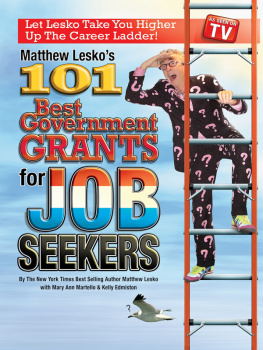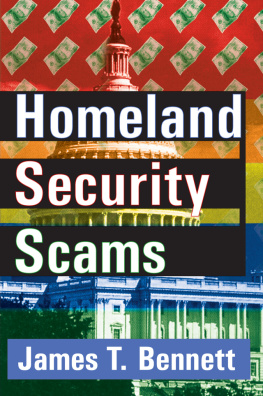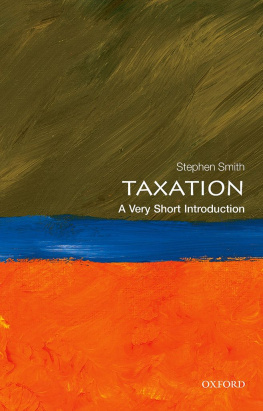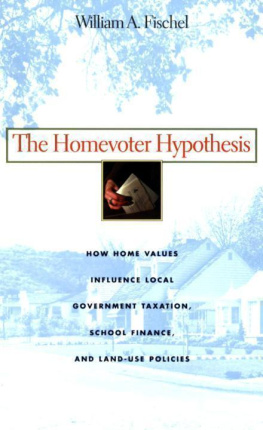How Do I Tax Thee?
A Field Guide to the Great American Rip-Off
Kristin Tate

Thank you for buying this St. Martins Press ebook.
To receive special offers, bonus content, and info on new releases and other great reads, sign up for our newsletters.

Or visit us online at us.macmillan.com/newslettersignup
For email updates on the author, click here.
The author and publisher have provided this e-book to you for your personal use only. You may not make this e-book publicly available in any way. Copyright infringement is against the law. If you believe the copy of this e-book you are reading infringes on the authors copyright, please notify the publisher at: us.macmillanusa.com/piracy .
To my brother, Austin.
You dont pay the taxesthey take the taxes.
Chris Rock
Remember how it felt to tear open your very first paycheck?
Such pride! Such excitement! Such... Damn! I have to pay what now in taxes?!
If youve made it to the wage-earning age, you knew this day was coming. Taxes have become so ingrained in our national psyche that we never even think about them. We blindly accept them as an unavoidable fact of lifea cost thats completely out of our control, or at least is the necessary trade-off for living in a civilized society.
Our parents thought this way, too, and so did their parents. And just like a lot of other unwelcome hand-me-downs (lookin at you, $20 trillion national debt), its never occurred to most of us to question the fairness and quality of the multilayered system we live under, because we werent privy to the decisions that led us to this point in the first place. And now were getting slapped with a big fat price tag, while Baby Boomers retire to Florida and play pinochle.
No one ever taught us to ask questions like, Are our tax policies still appropriate and fair? or, Wheres all that money actually going? or, Am I comfortable with how the government is spending my tax dollars? When a policy seems out of your control, its easier to abdicate personal responsibility and accept the circumstances for what they are.
And that, my dear reader, is a problem.
But heres the thing: The taxes that come directly out of your paycheckfederal, state, Social Security, and Medicareare only the ones you know about. The ugly truth is, youre getting gouged all day, every day, by taxes hidden and applied to every aspect of your life. Through the manifold taxes that are applied to necessary expenses like rent, transportation, and utility bills, to leisure activities like taking your date to the movies, and to seemingly free things you do like walking the dog or recycling an empty kombucha bottle federal , state, and city governments are covertly taxing your countless activities and effectively siphoning money out of your bank account. When we fill out our W-2s, we acknowledge that were contributing a portion of our salary to the government. But hidden taxes? We dont even know about them most of the time. And if you dont know about them, you cant object to them, which is precisely why theyre hidden in the first place.
The average millennial brings home $35,500 a year, pretax. In New York City that translates to a take-home salary of about $27,500 after state and city income taxes. Imagine trying to make it in the Big Apple, where the average rent for a one-bedroom apartment is $2,700 per month, on a $27,500 a year salary. And on top of all that, every time you buy something from a store, use any form of transportation, eat at a restaurant, go out for drinks with friends, or pay your cell phone, gas, cable, or trash bill, you pay additional taxesoften unwittinglyin the form of sales taxes, service charges, miscellaneous fees, and price tags that are inflated to pay for the cost of government regulations. No wonder you have 17 jobs.
Dont believe me? Pull out your latest cell phone bill and look at all the itemized charges. Extra line items on your bill, in addition to what youre paying for the actual cell phone service, are often camouflaged by vague, important-sounding language that makes the charges appear essentiallike documentation fee, service charge, or equalization fee. These charges are essentially taxes. They are costs levied on you by the government, directly or indirectly, that increase government revenue and finance government activities.
Were not angry about those charges and fees (read: taxes) because we usually dont know or notice when were being charged (read: taxed). And when we do know that such fees are being assessed, we delude ourselves by believing that the fees really should be paid in the first place. Who wouldnt be opposed to an equalization fee, you ask? Wait until you find out whats really happening with the money you pay. Most of us want to believe that when we pay hidden taxes to the government, the money is used well; but these ideas are also delusions, in need of a close revisiting.
Every year, Americans pay at least $657.5 billion in hidden taxes. Total personal income taxes represent less than half of our total tax burden.
Heres how it works: We elect government officials. And what do We The People claim to detest more than anything else? Taxes! So candidates often run on the promise of reducing (or at least not raising) our taxes, ever. But cities and counties and states have budgets to balance, and oftentimes problems arise that require additional funding. Your elected official knows he cant raise your taxes, or youll remember it next November and vote him out of office. So instead of putting a new tax to a vote, he invents a fee and attaches it to something we already have to spend our money on anyway, such as our cell phone or internet bill.
Maybe youre thinking youre somehow exempt from this hidden tax situation. Youve scored a fancy job with a big-shot salary and killer benefits. Or maybe youre capitalizing on the gig economy, livin that laptop lifestyle. It doesnt matterthe taxman comes for us all, and he does NOT play nice. Millennials in particular stand to get especially taken advantage of by this system. Were at the beginning of our adulthood, meaning most of our lifetime earnings are still ahead of us. Were saddled with higher debts than any generation before us, and were about to bear an even heavier burden when it comes to caring for our elders. In fact, by 2033, well be supporting more people over 64 than under 18. At the same time, we are in a unique position to do something about all this. We represent more than one-quarter of the total U.S. population; we make up the largest share of the voting-age population. If we wanted to, we could sway a presidential election by voting for one candidate or the other (or by just staying home and binge-watching Stranger Things ).
This book is for everyone who pays taxes, regardless of political affiliation, age, or income bracket. Taxation is not a partisan issue, at least not within the scope of this book. No matter which party is in control, or whos writing the federal, state, and city budgets governments at every level continue to operate with minimal transparency and abysmal efficiency. Regardless of where your political affiliation lies, we can all agree on the basic right to know where and how our money is being spent. We can agree on the basic responsibilities of a government by the people and for the people, and we can all be honest and admit that even the people we voted for dont always operate with our best interests at heart.
In the spirit of full transparency (thats what this book is all about, after all), Ill tell you where I stand in all this: I like having things like a working fire department and structurally sound bridges. But I do believe the government has gone overboard with its regulations and impositions, and I think I should be allowed to decide for myself what kind of siding Id like on my starter house, or to opt out of a particular safety recommendation if its not within my budget and no one bears the consequences except me.









